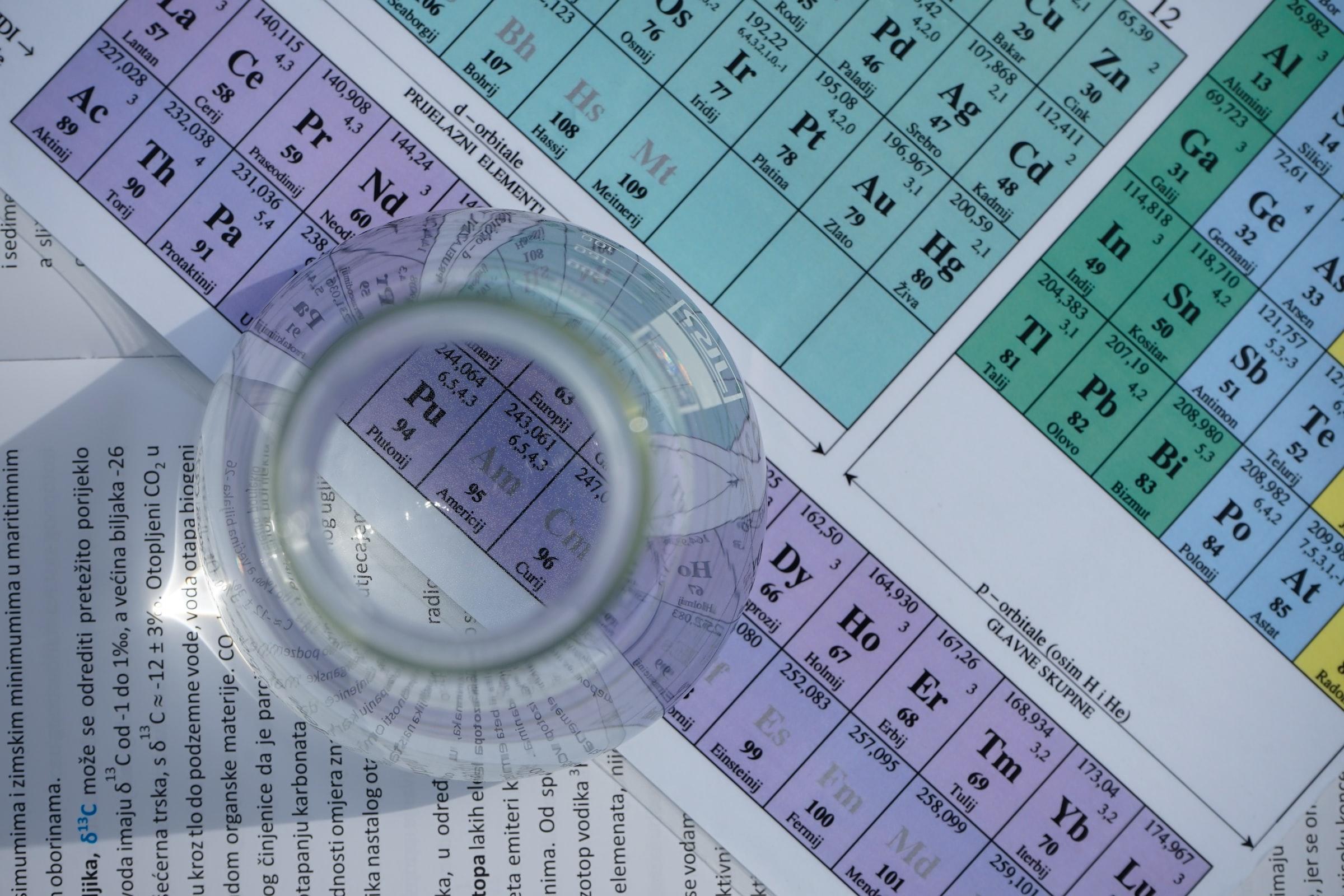In order to tackle an exam, you need a lot of preparation. Studying chemistry takes time. Perhaps the first thing you need to understand is that you cannot skip steps. The study of chemistry does not happen overnight. If you do not learn the basic concepts of this science you will hardly be able to learn the more complex ones. Students learn basic concepts during their chemistry lessons which allow them to better understand this science. Chemistry can be defined as the study of matter and the changes the matter undergoes. In order to properly interpret the definition of chemistry, it is necessary first to define what is matter and what changes are from the point of view of chemists. Becoming aware of the essential function of this science is essential to continue your learning.
Before understanding concepts such as Types of solids, Bonding, electrical conductivity, for instance, students must learn definitions that are the basis of their future knowledge. The concept of matter, for example. Matter can be defined as anything that occupies space and that contains mass. Some manifestations of matter are easily detected by a person. But some are less perceptible, which doesn't mean that they don't exist or they don't fill a space, such as the air we breathe. Perhaps understanding matter as "a thing" will be enough for most common situations. However, students preparing for their NCEA Chemistry Level 2 exam must understand that this concept is both more complex and deeper.

In particular, students who take the NCEA chemistry level 2 exam must be able to handle concepts such as types of solids. The majority of chemical elements and compounds, especially inorganic compounds, are solids under normal conditions. There is a pretty direct relationship between the type of bond and the structure of the solid. All this must be related to covalent networks. This subject is always included in the exam. Covalent network solids are composed of atoms covalently bonded in a three-dimensional network or in layers of two-dimensional networks. Due to the strength of the covalent bonds, covalent network solids have high melting points. The proper sequence of study would be as follows: Solid types and covalent networks.

Studying chemistry requires your better math skills
Before you begin your chemistry studies for your NCEA chemistry level 2 exam, you should be very clear that sciences such as math will always be present in the exercises related to chemical processes. Math is essential for this science. Anyway, you do not need to be a great mathematical genius, although you will need to be able to handle basic operations, solving equations and be able to have some knowledge of more advanced arithmetic. Math is a universal language. It is also a science in itself that continues to evolve. But also, math is a necessary tool for the resolution of problems that the rest of the sciences pose.
If the universe is written in mathematical language, chemistry is no exception. Chemistry was consolidated as a science because it was built according to the geometrical custom that was the model of science during the Age of Enlightenment. The process of chemistry's mathematization was belated, but no less powerful than the one that had taken place a century earlier in physics. Initially, the use of arithmetic was not related to the resolution of chemical problems. However, great scientists such as Marie Curie and Amadeo Avogadro helped to make mathematics a necessary tool for the chemistry field.
Remember that a good understanding of math will make it easier for you to study chemistry. In addition, it will be very useful when you take the level 2 chemistry exam. Generally speaking, students are aware of the importance of math in their chemistry studies. Students have all had access to chemistry lessons in which they have been instructed in this discipline, emphasizing the close relationship between those two sciences.
Understanding some of the content of your NCEA Chemistry Level 2 exam.
One of the important topics that will appear on the exam is bonding. A chemical bond is the force that binds atoms together in order to form chemical compounds. This bonding gives stability to the resulting compound. The required energy to break a chemical bond is called the bond energy. Students should be aware that there are different types of bonds, each of them distinguished by the relationship that exists between the electrons of the atoms.

Ionic bonds are made by the transfer of an electron from one atom to another. In covalent bonds, electrons are shared between two atoms.
Covalent bonding occurs between non-metallic atoms of similar (usually high) electromagnetic charges, which bond together and share some pairs of electrons in their valence shell. It is the dominant type of bond in organic molecules and it can be of three types: single (A-A), double (A=A) and triple (A≡A), depending on the number of shared electrons.
Ionic bonding consists of electrostatic attraction between particles with electric charges of opposite signs called ions (electrically charged particles, which can be an atom or molecule that has lost or gained electrons, that is, it is not neutral).
Metallic bonding occurs only between metallic atoms of the same element, which usually form solid, highly compact structures. It is a strong bond, which binds the atomic cores together, surrounded by their electrons as in a cloud.
Students should learn the distinctions between related elements, such as the distinction between a solid and the corresponding bonds. It is very important to give a good chemistry exam so that students can understand the relationship between each topic and how they can be combined. In the exam you will have to use logic and deductive skills to answer the challenging questions on the exam. Facts, concepts and generalizations can be easily learned. However, applying all of your knowledge to solving a problem may be more difficult
The best way to approach the NCEA chemistry level 2 exam subjects.
As mentioned earlier, in order to pass all the goals set for you in the NCEA Chemistry Level 2 exam, you need to take it one step at a time. All the learning you obtained during your chemistry lessons is very important, but also all the studying you did at home is essential. Remember that every credit is important. The sum of all credits will help students achieve their final goals. It is essential that you do not neglect any subject. Use the study methods that suit you best in order to make it easier for you to learn the material. Although it is true that students handle a theoretical framework provided by their own school, it is very effective that they can also use additional sources in order to improve their knowledge.
Chemistry classes are essential. However, it is possible to achieve more in-depth learning if the student does research and adds other readings to their study process. It is always good to go further and push all your limits. Remember that chemistry always poses mathematical and problem-solving challenges. That is why the more prepared you are in mathematical science the better you will perform in learning chemistry. Additional issues to keep in mind is that the more you understand the subject matter the better you will acquire it. However, there will always be information that you will have to memorize. Chemistry works with many formulas and numbers that are often overwhelming for students. However, the more you assimilate these facts, the easier the future studies will be. Finally, remember that you are training for the exam and examining past papers can be very useful.
Helpful tips for any student
One of the most recommended techniques is to create a study routine. Studying for the level 2 chemistry final exam requires students to design a plan. Proper preparation requires time and dedication. Studying every day is essential. An hour or two a day will be enough if you start studying early. Mornings are always the best time of day to study. During the mornings the brain is better rested and it works better. Always remember to get a good night's sleep. Do not stay up late and never stay up late watching TV or playing video games. You should sleep at least 8 hours a day. Always remember to have breakfast before studying. Students who have a proper breakfast have better attention and their memory skills are more active. Always create a study plan. Review the topics and organize them.

The ultimate goal is to obtain as many credits as possible. Smart students value every credit they earn. The wise decision is to give importance to each of your goals, no matter how small they are. Remember that the accumulation of credits will add up to your final score. If you start studying the last week before the exam, you will hardly be able to understand concepts such as solubility, melting point, reaction and polymers, organic chemistry, types of solids, which are some of the topics that will be included in your Level 2 chemistry exam. This way, they can study the chemistry topics one step at a time.
If you are going to study, put your cell phone away. It is a common issue that we all get distracted because of excessive activity on social media, games, or mobile apps. This distraction is even more important when it is time to study. That is why if you want to properly understand chemical science you should stay away from screens, no matter what they are.
Summarise with AI:















Thanks